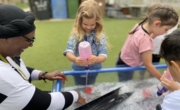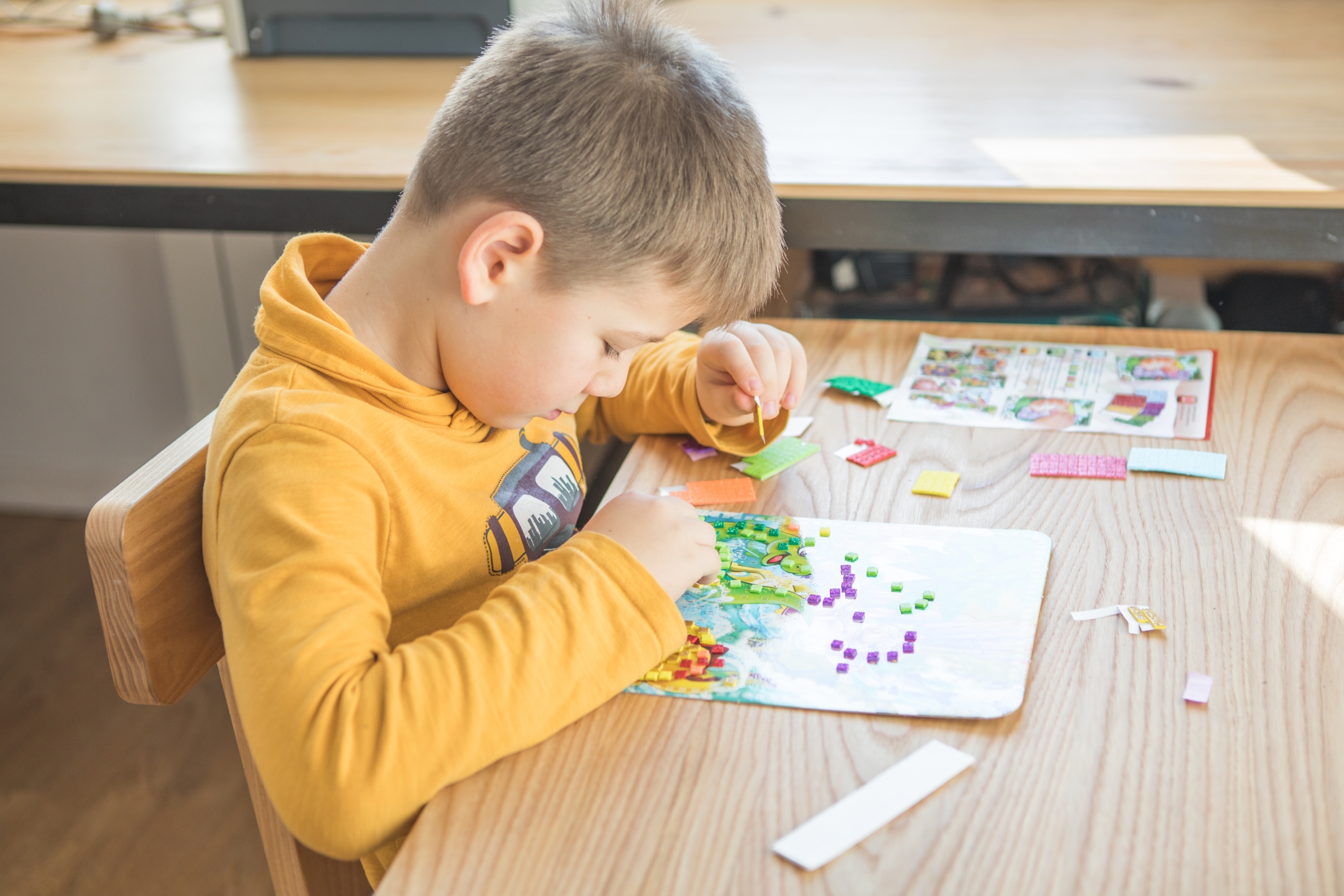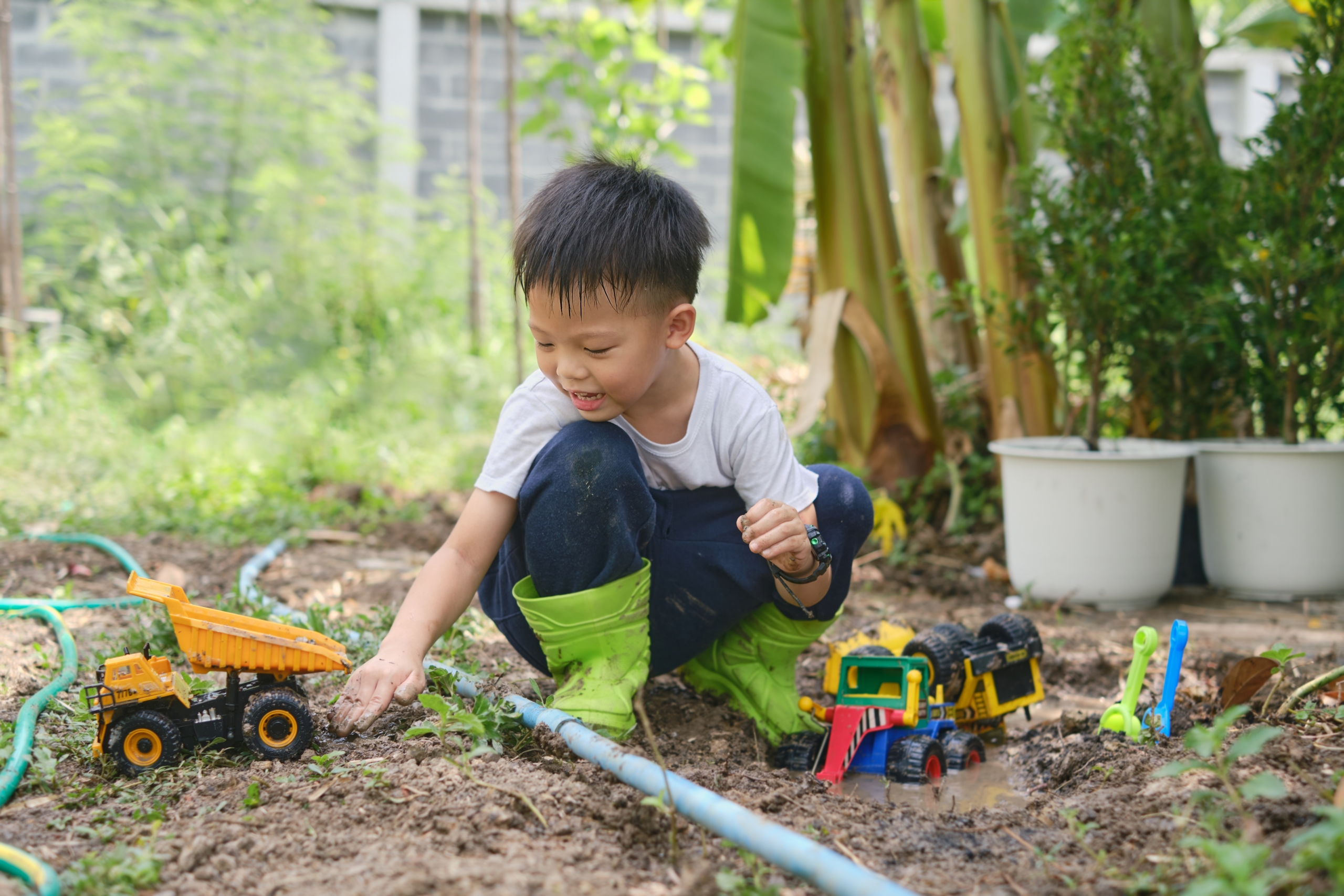Your child’s first day at nursery or pre-school is a big event in their lives so far, so it’s understandable that you might be worrying about how they’ll cope with the change. It’s also a big deal for many parents – it’s the first step to your child becoming more independent from you. While it’s an exciting milestone, it can also cause parents and children anxiety. To help you both feel ready we’ve spoken with play experts from our partner Fisher-Price® TM Play Lab to find out playful ways to prepare.
What types of play would you recommend to help children prepare before starting nursery or pre-school?
- Circle time (also known as story time) is when children will learn to sit together, listen, take turns in conversation. Practicing sitting and listening to a story that is being read aloud with a caregiver, siblings and maybe even a few toy friends, will help when they do this for real in the classroom.
- Play simple age-appropriate games where you need to take turns, listen to others and follow rules. This may be a new concept for pre-schoolers so engaging in some cooperative activities may help in their preparation.
- Setup activities like puzzles, Little People playsets and figures, art projects, building play or storybook exploration that they can do independently. This will help your child build confidence and promote success during independent play.
- Create a game out of doing simple self-help tasks independently, like getting dressed, hanging up their coat or bag, putting their toys away, etc. Of course, you can help when needed, but it’s important that they try.
- Play school – do this before school starts, then allow your child to refine it once they experience school for the first time.
What is the most important thing for children to know before their first day of nursery or pre-school?
- Going to school for the first time brings a lot of emotions for little ones. Talk to your child about what they can expect at school – what they will do and who will be there.
- Everyone remembers their favourite teachers name! Learn their teachers’ names and practice that at home to help them feel prepared.
- Make sure they know that you will always pick them up when their day is done.
- Acknowledge their feelings whether excited, nervous, anxious scared or all of the above. Let them know these feelings are okay to have.
- Depending on the age of your child, make sure they know where the toilet or potty is. When they start pre-school or reception, it helps if they can do some or all of it independently. Practice lots at home!
- Remind your child that they can always ask for help just like at home. Teachers are there to help them learn and grow in so many ways.
What routines are useful to set in place before nursery or pre-school starts?
- Pre-schools generally have a structured day, so children should get used to following a routine and doing things somewhat independently. If you do not already have an established night-time routine (for example; bath, brushing teeth, pyjamas and reading before bed) and morning routine (for example; brushing teeth, getting dressed and a healthy breakfast), now might be a good time to start one.
How should parents discuss nursery or pre-school with a wary or unwilling child?
- Introduce the idea in a playful way, use figures, like Fisher-Price Little People or dolls to play out a story of going to school.
- Visit your local library and find storybooks about going to school. This will allow your child to connect with the character and give you a natural opportunity to talk about it in an appropriate way.
- Focus on how much fun school will be, visit the school, see if any friends will also be there and start some playdates to get your children familiar with each other.
- Stay positive and excited about school when you talk about it.
- Allow your child to take ownership over this big kid experience! Let them pick out and pack their new backpack, prepare their lunchbox and pick their first day of school outfit.
How would you recommend parents set up their home play environments to help support the work of nursery and pre-schools?
- It may be helpful to create an environment that is reminiscent of the preschool classroom. Offer a variety of activities and spaces like a book nook, block section, creative arts area, pretend play space (like a kitchen or shop) and gross motor activities.
- With your child, routinely clean up when done with each activity. This will be expected at school as it’s important to take care of the toys and materials in the classroom.
What would you say to parents or carers who are worried about their child making the transition to nursery or pre-school?
- To help ease parent worries start your routines a few weeks before school starts so your family has time to adjust. Stick to it as routines are predictable and help children feel secure and successful.
- Develop a relationship with your child’s teacher(s). Introduce yourself ahead of time and establish an open dialogue about your child and their adjustments.
- Celebrate going to school and celebrate the completion of the first day (even it’s a tough one).
How can parents and carers prepare for separation anxiety through play or otherwise?
- Following the advice and routines included above will absolutely help with separation anxiety. Additionally, you can create a good-bye routine that is special and unique for just you and your child. Practice it and share with your child that this goodbye means you will be leaving each other for a little while but that you always come back. And as mentioned earlier, it is so important to keep talking positively together about school.
- To allow your child to get familiar and comfortable with where they are going, many nurseries and schools do visits and introduction days. This is also a good opportunity to meet the teachers!
The points above are focused on preparing for nursery and pre-school, but play is great for learning and development in general. That’s why over the summer we’ve shared practical guidance from our child development experts on creating engaging play spaces and fun, simple, low-cost activities that the whole family can enjoy. Check out our Creating Happy Memories hub page to find out more.
School transitions can be times of heightened stress in the household that can cause any of us to feel overwhelmed. If you’re struggling with any aspect of family life, or just need to speak to someone, you can contact our FamilyLine service for free emotional support and guidance.







